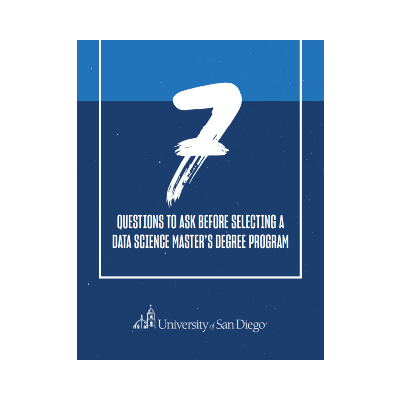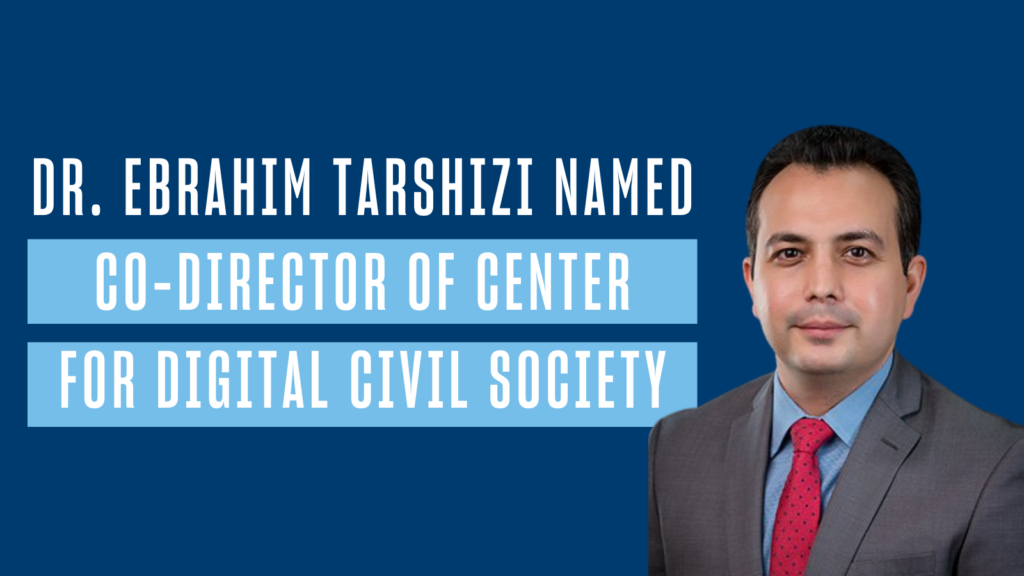By Jose Luis Estrada
My journey working with data started when I was an undergraduate student majoring in Industrial and Systems Engineering. As an undergraduate, I learned about statistics, stochastic methods, and programming in R. I gained an appreciation for working with data and realized its potential in business and technological advancement. Eventually, I joined the Applied Data Science Master’s program at the University of San Diego, and in my first year, I remarkably improved my technical and soft skills. Therefore, I am sharing four lessons learned from my first year as a junior data scientist.

Numbers and Algorithms, So What?
Some of the most common industries that hire data scientists are the technology, healthcare, and financial sectors. Yet, there are other sectors in need of data scientists. Being exposed to as many technical and business problems as possible within these industries will help data scientists be more effective at problem-solving. In addition, each of these industries has learning curves that data scientists need to face to provide guidance on actionable items.
Providing recommendations can be challenging for novice data scientists. Subjects such as statistics and programming take years to master. Beyond crunching numbers in the computer, the main priority is to provide stakeholders with an outcome and recommendation on how to solve the problem the team encounters. In most cases, business partners would not understand the technical analysis; thus, data scientists need to interpret the results for them. Data scientists bring a different perspective to a problem. It is their responsibility to recommend action items based on technical work, which are scientifically proven forecasting methods and predictive models.
Actionable recommendations from data scientists are one of the reasons why data-oriented jobs are in high-demand. Furthermore, these recommendations lead to long-term strategies that can help organizations optimally increase productivity and profitability. The work of data scientists vitalizes the continuous economic and technical growth of data-driven companies, especially nowadays. Therefore, data scientists are usually paid higher salaries than an average technical position.
Listen, Ask, and Share Findings
A common misconception from new data scientists is that practitioners in this field spend most of their time coding. Although this can be true, there are other necessary soft skills to practice to become efficient in the profession, such as problem identification, problem-solving, communication, data storytelling, and teamwork.
Data scientists can get involved in projects where the problem has been identified or (occasionally need to be recognized by the team), and there is a project plan, but that is not always the case. During my first experience in the industry, I was given a project plan. Although it was a defined project, the team and I found that we needed to change its scope after a couple of weeks. Communicating with managers and executives was an exciting experience, but I had to be extra attentive to the conversations. In some cases, business partners might know that there is a problem but will not accurately describe the issue at stake. Here is where listening skills come into play. It is essential to understand the stakeholders’ concerns and come up with clarifying questions as soon as possible. After these conversions, I was able to carry on with my part of the project, where I could pull the data from the databases and find insights.
As we extract and explore the data, create machine learning models to forecast predictions, and create informative dashboards, we begin to understand hidden patterns and become educated in the matter. This work is usually executed individually, but there is still a lot of communication within the team at every step of the project. For example, as a junior data scientist, I communicated with senior scientists in comprehensive review code sessions. It was my responsibility to explain what I wanted to achieve and the thought process that led me to the current state to be respectful of their time. Additionally, I shared my findings, that I documented through reports, and presented them to business partners, which were crucial for other teams to take action. In this step, I justified the relevance of my findings to help other groups act. This experience made me realize the importance of communicating opportunities and areas of improvement. Finally, I documented my learnings from the project to avoid setbacks in the future for my team and myself.
Stay Curious and Persist through Challenges
My academic training at the MS-ADS program has been a great foundation to build up my technical skills by encouraging me to practice my programming and statistics skills daily. However, data science is a field that is continuously evolving. There is always new knowledge to acquire to be a competitive and skillful analyst. For example, although Python and R are the most common programming languages used in the field now, other programming languages, such as Julia, are potentially predicted to be more relevant in the future. In the end, these are just tools to help get to a solution; and to be competitive, professionals should never stop learning. Data Science can be challenging and time-consuming to master it. There are too many domains to cover, such as data engineering, machine learning, cloud computing, time series, text mining etc., and the only way to improve is by working on different projects. However, by spending sufficient time and practice, one can master some of these important topics. Therefore, patience is a quality that data scientists need to develop. I like to think of data science as a sport or an instrument; you will be as good as the time you spend on personal, academic, and industry projects.
Strategically Hunt Jobs
Most graduate students in the master’s program are eager to start working in the industry or research opportunities. According to my experience, I learned that many companies start their recruitment process as early as the beginning of the academic year. Although the hiring process is different for everyone, the assessments and technical interviews required to obtain a position as a data scientist are challenging. In my experience, considering interviews as a learning opportunity to improve my communication and programming skills helped me grow as a professional. As a result, I dedicated hard work and effort to become a strong candidate. After finishing my first semester in the data science program, I secured an internship at LinkedIn. My takeaway from this experience is that the chances of getting a job on the first try are minimal. Job hunting is a learning process.
Even after working for LinkedIn, I continue improving my interviewing skills. I also mentor other students on their job search by providing resume critique and conducting mock interviews. We will face many interviews at different levels during our professional careers, and connecting with other data scientists will help us become better practitioners.
Conclusion
Data Science is a field that requires many technical and soft skills to succeed. Mastering these skills need adequate time and practice, but it can significantly impact a professional career while helping organizations to achieve their business-oriented goals. A graduate degree program such as the Master of Science in Applied Data Science offering at USD is an ideal way to set yourself up for success in this field. It is not an easy career path, but with experience, consistent work, and a positive attitude, it can become a gratifying and impactful career.




